How To Buy a Boat - Smart Boat Buying 101 | Boateka
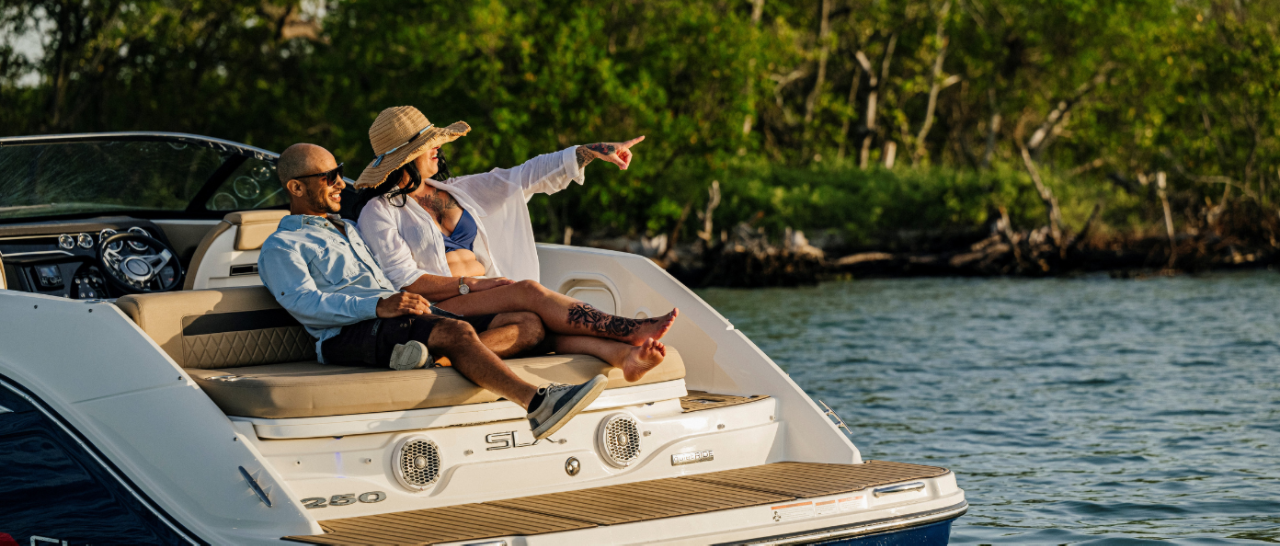
Smart Boat Buying 101
Buying a boat is an experience you should enjoy. To start, it’s important to be honest with yourself about how you, your family and your friends will want to use it. From offshore fishing and leisurely lake trips to action-packed water sports and discovering hidden coves for swimming – the possibilities are endless when owning a boat!
The following guide will help you plan your boat purchase:
Set a budget
Before you can begin your search, it’s important to set a budget and stick to it. The cost of boats can vary greatly, so you’ll need to understand what features matter most to you and all costs associated with owning a boat. Beyond the purchase price, also consider ongoing maintenance, storage, fuel and insurance. Sometimes, what may seem like a cheap boat is much pricier with all costs considered.
Use our cost of ownership calculator to start to get an idea of what your budget should be.
Set an ownership plan
Once you purchase a boat, what are you going to do with it when you’re not having an awesome time on the water? This is a step that is often overlooked but is incredibly important to consider. You’ll need to find a secure place to store your boat both during the season (with easy access to water) and during the off-season. Marinas with slips or dry stacks are great options, but come with monthly costs. Trailering may be more cost-effective, but involves more hassle on your boating day and requires storage space and a vehicle (and a driver!) that can tow comfortably. More details on these costs can be found in the total cost of ownership [/total-cost-of-ownership] resource page.
Choose the boat type based on your needs
There is a range of boat types available. You should figure out what are you looking to do with your boat. Do you want to use your boat for watersports, or do you prefer a leisurely cruise? Would you be taking your boat offshore or enjoy freshwater fishing? The right boat type for you will depend on what the boat will be used for and where you will be boating.
There are many different boat types, but below are some of the most common ones:
Common Boat Types
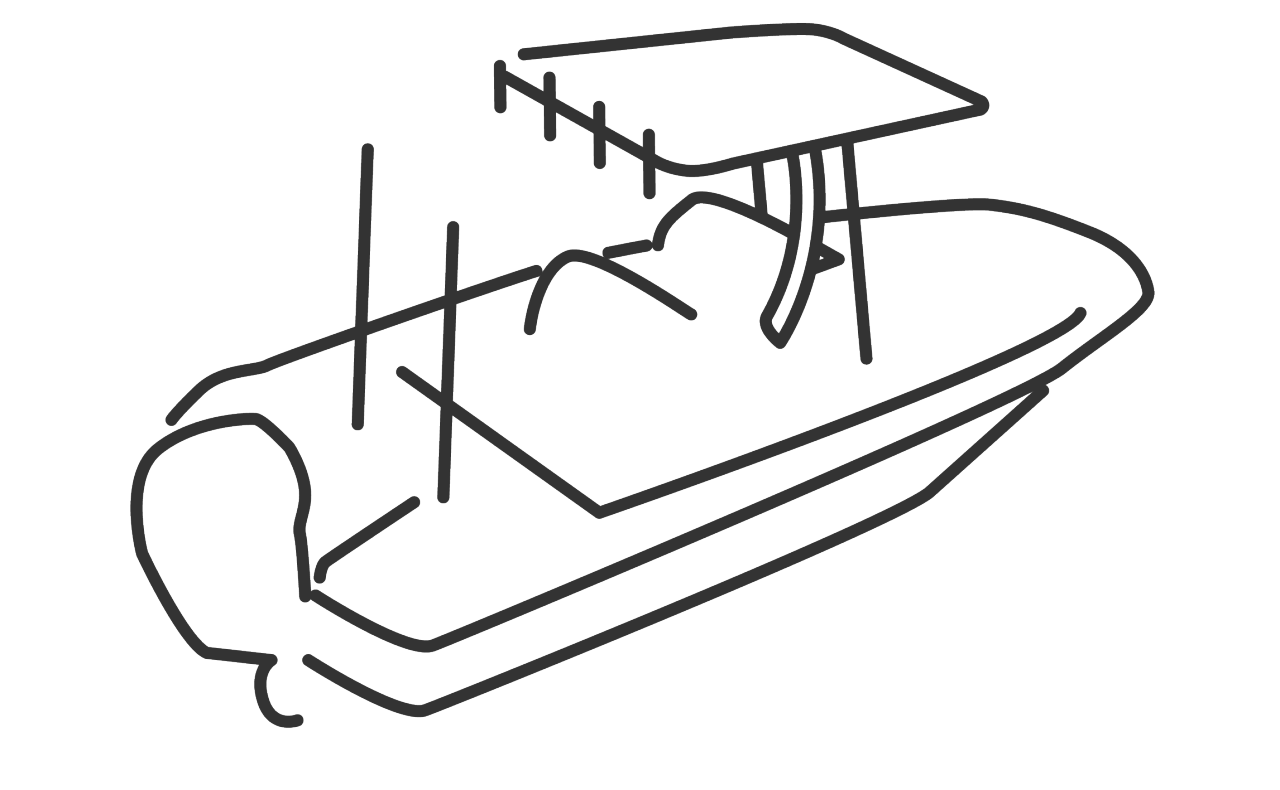
Center Console: These boats are constructed of fiberglass and designed for fishing. You can choose between center console and dual consoles. Other fishing boats also exist (aluminum freshwater, bass boats) but are more specialized. Recently some center console boat designs have become more versatile to support entertaining and basic tow sports.
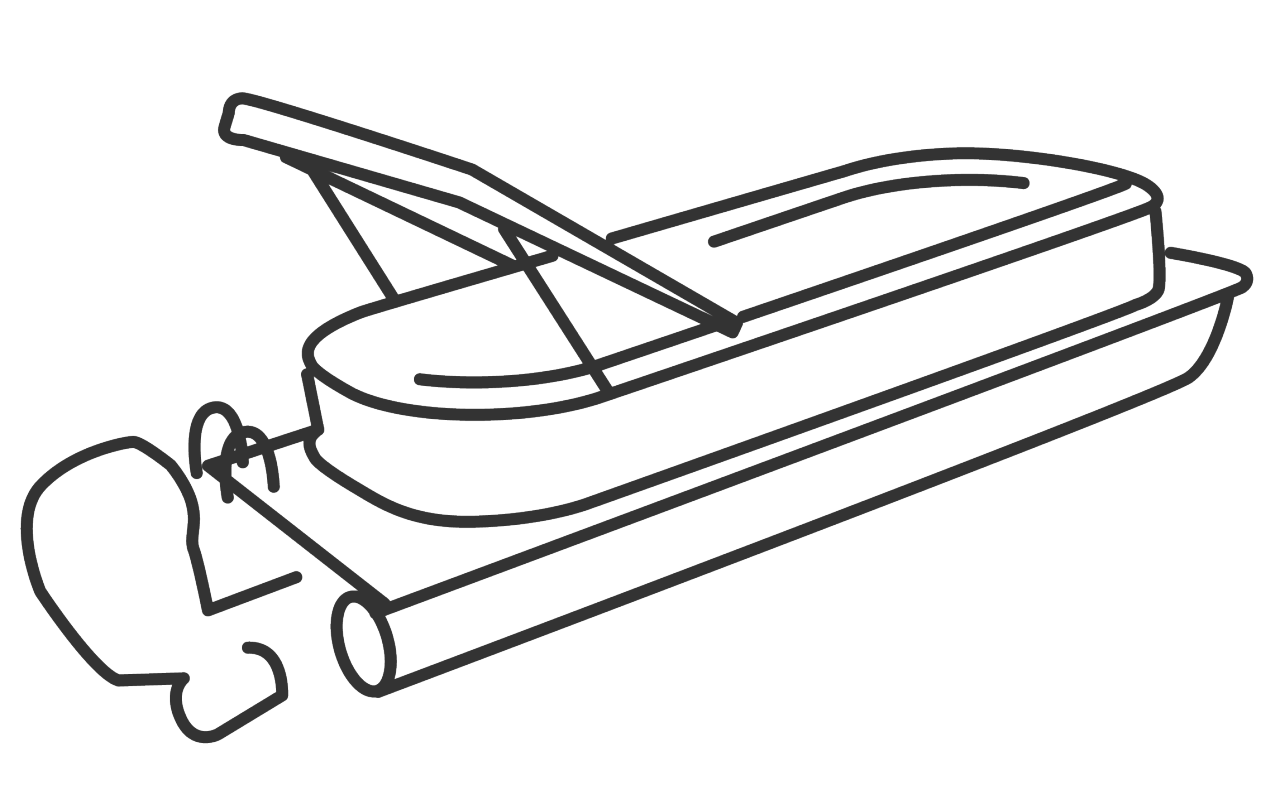
Pontoon: Pontoon boats utilize aluminum tubes to stay afloat. These boats are extremely versatile; however, they are primarily focused on entertaining, leisure cruising and fishing. Some pontoons with larger engines can support basic tow sports.
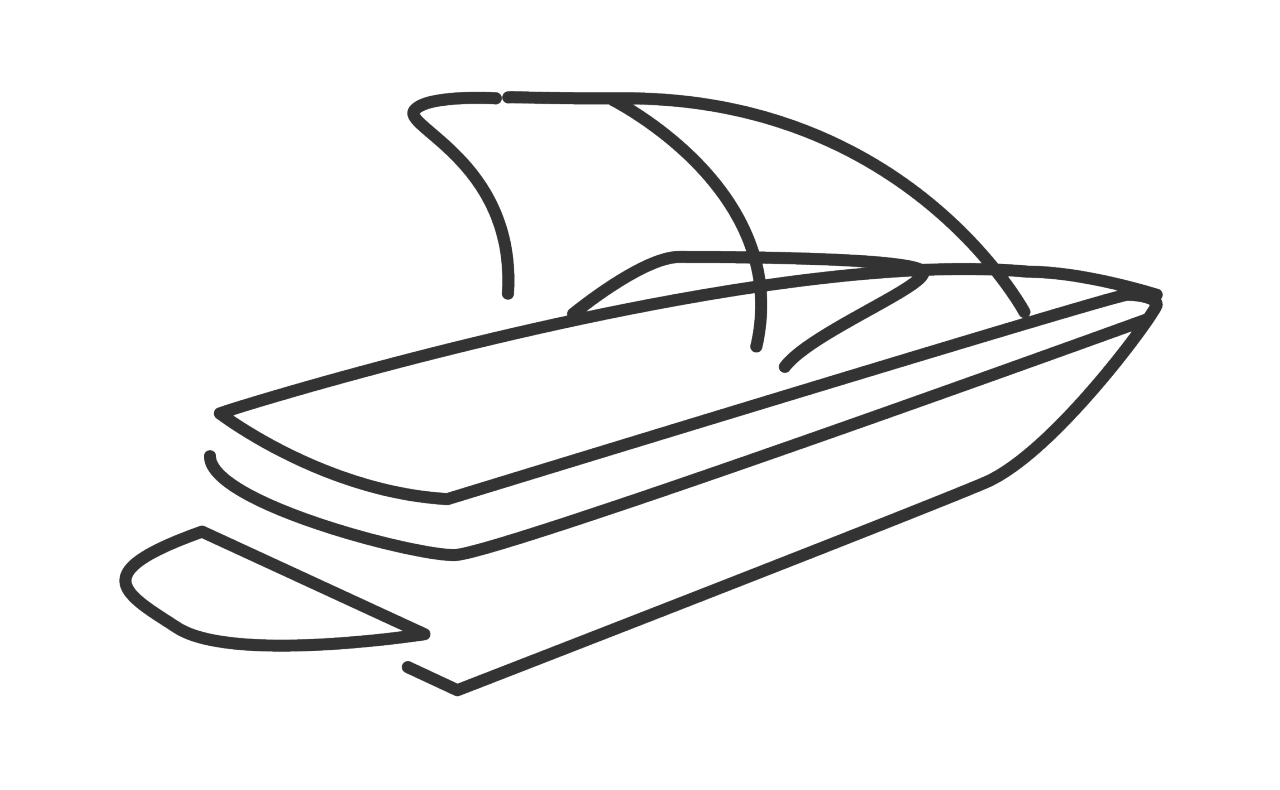
Ski/Tow: Built around specialized hull designs and strong engines, these boats produce large wakes to enable serious water sports. These boats are used for activities such as water skiing, wakeboarding and wake surfing; although they can always be used for just cruising.
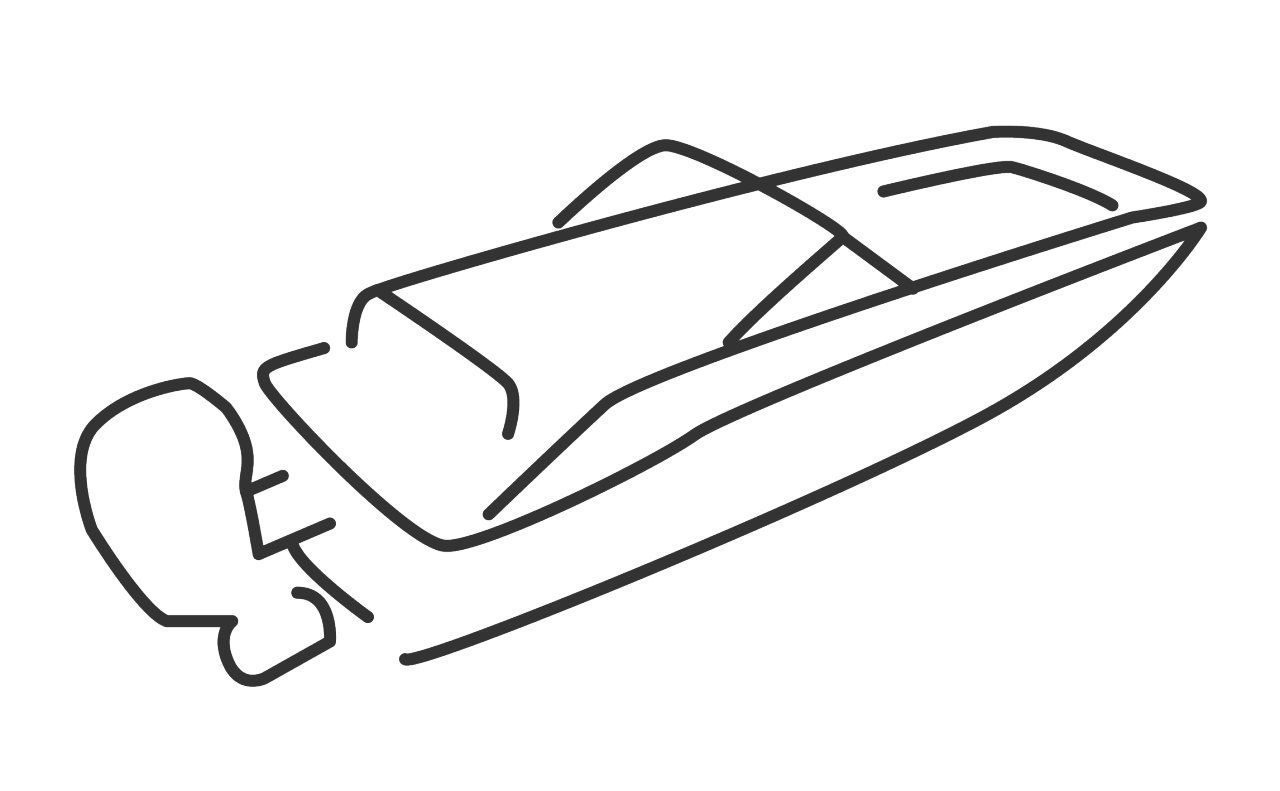
Deck: View the deck boat as a cross between pontoon and bowrider with respect to capacity and performance. Deck Boats are similar to bowriders, but have more open space thanks to an expanded bow (front) section. This form lends itself to cruising and entertaining larger groups, although it can also support basic tow sports and fishing. Deck boats may not perform as well as a typical bowrider due to the functionality/capacity focus of the hull.
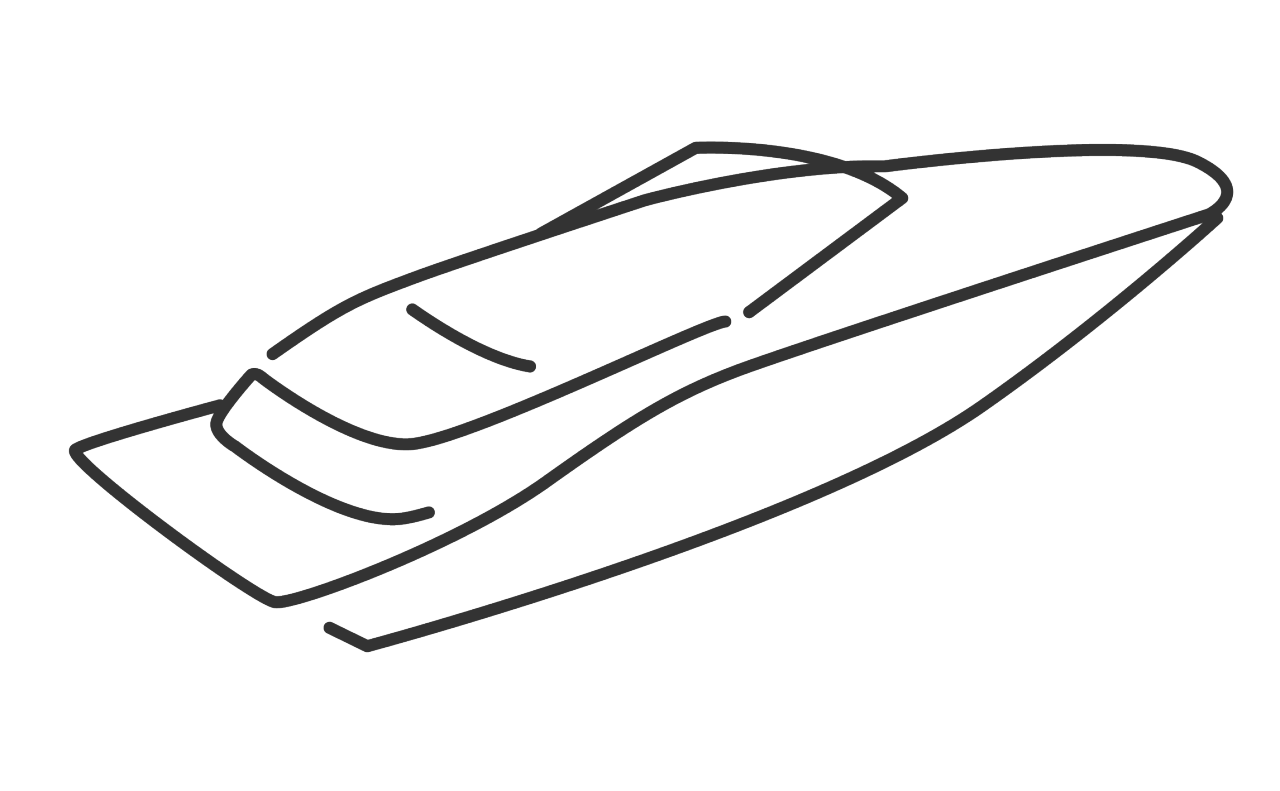
Bowrider: These boats are extremely versatile and can support tow sports, cruising and entertaining, even in rougher water. Their V hull shape allows for greater performance and handling when compared to a deck boat.
Boat Size
The length and beam (width) of your boat are important considerations. A longer, wider boat is more stable, will carry more weight and requires more power. A shorter, narrower boat is less stable, holds fewer people and needs less power.
If your primary activities involve bigger water, you’ll want a longer, wider, deeper V boat that will provide the stability needed for those situations. If you’re running in small water areas or you just want to putter up and down the river, a smaller boat will work just as well.
Another thing to factor in is where you intend to store the boat. If you are planning to store your boat indoors, be sure to take note of the overall width, length and height of the trailered boat. Remember to account for the motor and trailer in addition to the boat.
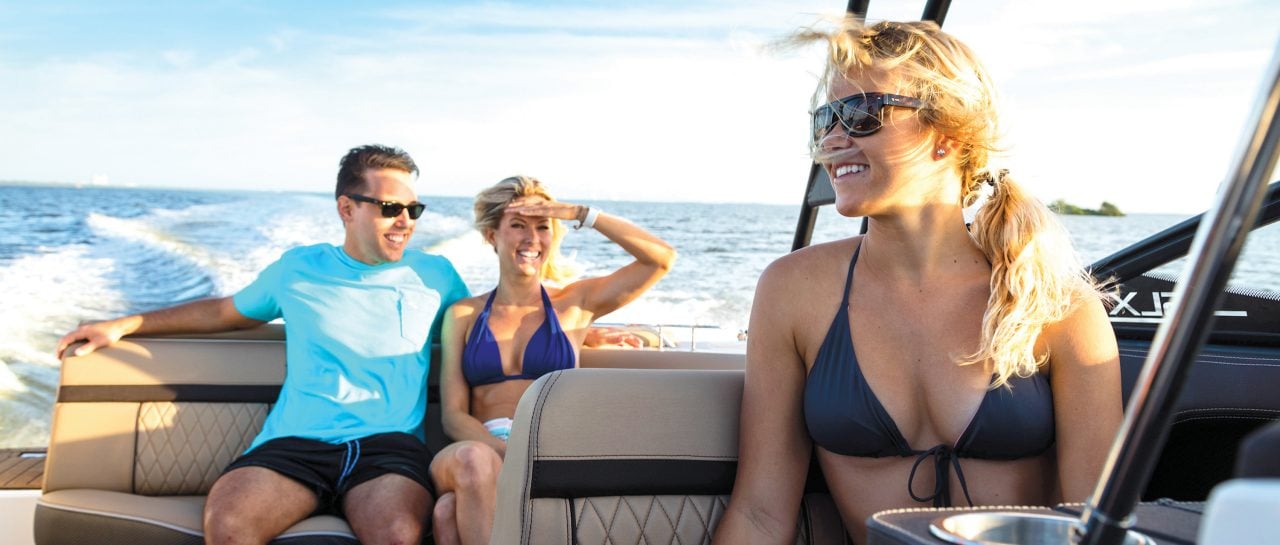
Accessories and Equipment
Boats come with various equipment and accessories. Some of them improve the functionality of your boat by allowing you to make the most of your boat, others are designed to offer comfort and convenience.
Here are a few of the accessories you should look out for:
Bimini Top: If your boat does not have coverage from the sun, you may want to consider getting one installed. This can extend your day greatly, especially when involving small children and sun-sensitive individuals and pets.
Storage Cover: Unless you keep your boat in a conditioned garage between uses, it is highly recommended to get a canvas cover for storing your boat. It will keep weather, leaves and other debris from dirtying your boat and staining your upholstery.
GPS: Having a good GPS is highly recommended if you plan on being out in the open water. Alternatively, there are a number of great GPS mobile apps these days, which may serve your purpose. However, keep in mind cellular signals typically don’t reach more than 10 miles offshore, so don’t depend on using your mobile phone in open water.
Marine Head (Toilet): If you boat often with small children or those with small bladders, a basic marine head or portable toilet can enable longer experiences on the water.
Research & Compare
The best place to start your boat search is online.
Click through boater resource guides to get a feel for boat ownership, then browse through online listings and compare different options. You can search by boat type, brand, length, budget etc. When researching online, make sure the photos provide a detailed view of the boat’s exterior and interior.
Be sure to make use of all the resources available to enable your research. For instance, Boateka provides a 100-point inspection report that you can view online.
Sea Trial
A sea trial is an essential part of the boat buying process.
Test out your boat in a real-life environment to determine how the boat will perform on a typical day out. It is advisable to test the boat’s performance in different situations on water.
Also, don’t forget to act as the passenger and sit in various places around the boat where you would be located, while someone else skippers the boat. Be sure to ask any questions that you may have during the trial.
Services
Once you have selected your boat and are ready to buy it, there are a few additional things to consider before you make a purchase with any used boat dealer.
Boateka can help you answer the following questions:
- How will you pay for the boat? You can explore financing options and pay more upfront to reduce your monthly payments.
- Does the boat come with a warranty? What does the warranty cover and for how long? You may decide to look into product protection packages to extend or expand what coverage already exists to give you peace of mind.
It’s time to find your boat! You’re equipped with the knowledge you need to confidently start your search. By staying honest with yourself and keeping these considerations in mind, you’ll find the right boat for you.


